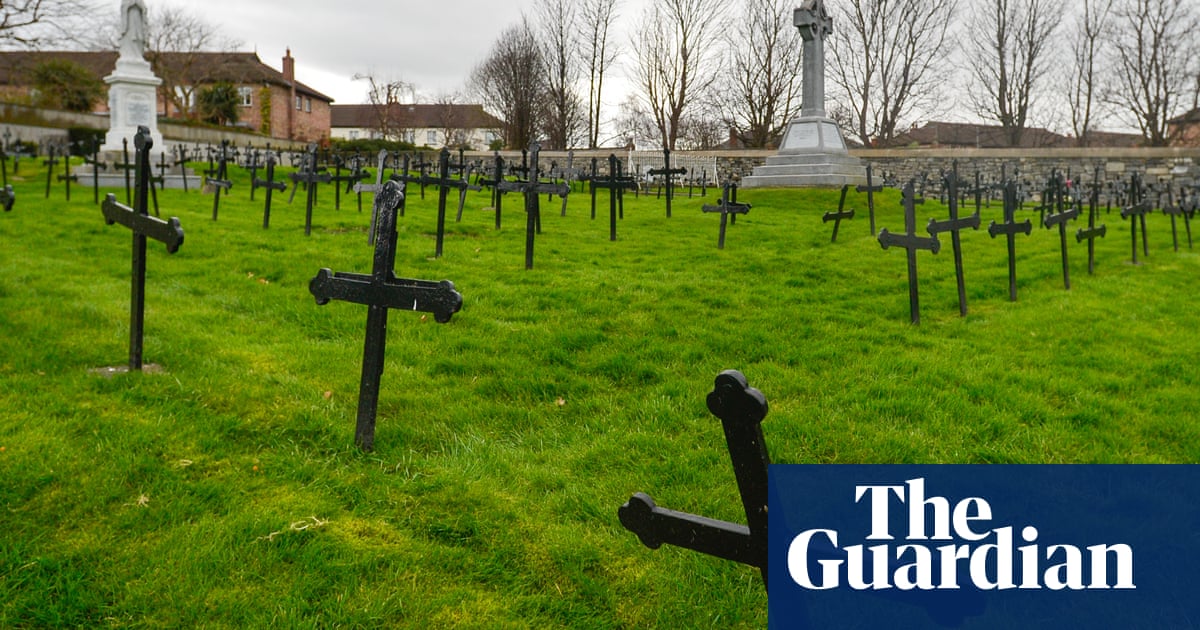Survivors of Ireland’smother and baby homesare being “re-traumatised” by the prospect of losing benefits in the UK if they accept compensation from the Irish state, Westminster has been told.
The warning comes amid a campaign backed by representatives of almost every political party in the UK and figures includingSteve Coogan, who starred in Philomena, a film about the mother and baby homes scandal.
More than 100 MPs and peers from across the political spectrum – including Sinn Féin and Unionist MPs – have now signed a letter in support of the campaign led by the Labour MP Liam Conlon, ahead of a parliamentary debate on Tuesday calling for a change in the law.
Ireland has begun the process of confronting one of the most painful chapters in its history by offering compensation to thousands of unmarried mothers who were shunned by society and hidden away in the church-run mother and baby homes.
However, up to 13,000 of those survivors who are living in Britain risk losing access to essential means-tested benefits if they accept the compensation, which can range from €5,000 to €125,000 depending on the length of time people were resident.
“Sadly, for thousands of survivors in Britain, what was meant to be a token of acknowledgment and apology from the Irish government has instead become an additional burden,” the letter states.
At present, any compensation accepted through theIrish government’s mother and baby institutions payment schemeby survivors living in Britain is considered as a recipient’s savings. It can therefore disqualify them from means-tested benefits, including universal credit or pension credit, and affects eligibility for social care.
The letter adds: “This complicated and stressful situation is putting undue pressure on survivors who are currently making applications to the payment scheme, forcing them to revisit their most traumatic experiences as they weigh up the cost of accepting compensation.”
The proposed solution, which is being called Philomena’s Law, is to implement an “indefinite capital disregard” – a legal mechanism that ensures compensation is not counted as savings for the purpose of benefits eligibility. Conlon said this model had been used for survivors of the 7/7 and Manchester bombings, as well as the Windrush scandal.
“Beyond ensuring that survivors are not forced to choose between compensation and vital benefits, our campaign has also been about shining a light on the mother and baby institutions payment scheme itself,” he said. “Takeup is incredibly low in Britain and we want to ensure that every eligible survivor knows about it and feels empowered to apply.”
The bill is named after Philomena Lee, whose story of forced separation from and later search for her lost son inspiredthe Oscar-nominated filmstarring Coogan and Judi Dench.
“As one of the people who suffered unimaginable abuse within a mother and baby home, I know that, while financial redress doesn’t fix everything for families like mine, it represents a measure of accountability for what happened,” said Lee.
The Irish government’s redress scheme was introduced after an inquiry detailed the horrific experiences of about 56,000 women and about 57,000 children who were placed or born in homes, mostly run by nuns, between 1922 and 1998.
In its report published in January 2021, it discovered an alarming number of deaths of babies in the homes and documented the cruelty and neglect suffered. Many women were forced to take part in work and separated from their babies, who were fostered or adopted.
A DWP spokesperson said: “Our thoughts are with the people impacted by this historic scandal. We are currently examining how compensation payments could impact benefit entitlement and will update in due course.”
